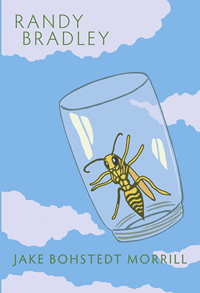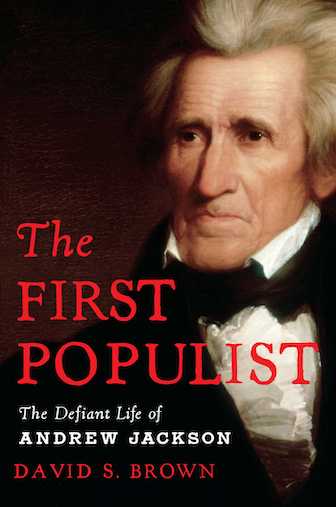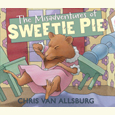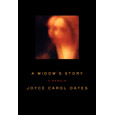The Weird Sister
Jake Bohstedt Morrill’s epistolary fable probes the darker side of sibling rivalry
Randy Bradley, the literary debut of Oak Ridge resident Jake Bohstedt Morrill, is a tiny hardcover volume—it’s very reminiscent of Maurice Sendak’s Nutshell Library—that constructs an off-kilter narrative around a massive, mysterious squabble between two sisters. Family disputes are of course familiar ground for debut novelists, and for readers, too: anyone who’s lived through a protracted familial disagreement will wince with remembered discomfort in reading this book. But the story Morrill constructs, and the reader’s own place within that narrative, prove anything but familiar.
Is Randy Bradley a dark story that wears its heaviness lightly, or a clever little fable that dips one wary toe into a fathomless darkness? The book’s scant forty pages, written as a letter from the slightly psychotic Lucy to her brother-in-law Richard (the title character himself never appears), are both thematically dense and linguistically slippery. Readers steeped in postmodern literary theory will certainly delight in Lucy’s hyper-constructed word games as Morrill leaves Lucy’s character completely up for grabs: is she a dangerous lunatic, or a cheerful eccentric? Only the reader can decide for sure. In any case, this slim little trick of a book—small enough to fit in a pocket, solid enough to demand to be taken seriously—defies compartmentalization.
Morrill, a Unitarian minister in Oak Ridge, is a graduate of the Iowa Writers’ Workshop as well as Harvard Divinity School. He answered questions from Chapter 16 via email:
Chapter 16: One reviewer called Lucy “well meaning but deranged.” To me, “well-meaning” seems like a bit of a stretch, while “deranged” is much closer to the mark. Was it disconcerting, disorienting, or even downright creepy for you to spend time deep inside Lucy’s head?
 Morrill: If I had to pick only one piece of Scripture to live by, it would be Matthew 5:44, where Jesus says, “Love your enemies and pray for those who persecute you.” The challenge to extend boundless compassion toward those whose suffering creates suffering in me requires of me an ability to see the world as they see it, through their biases and limitations—just as I hope others would have compassion on me, with my biases and limitations. Channeling Lucy’s voice was like trying on someone else’s long, glittered ball-gown and strapping on borrowed stilts and tottering around the yard for a while—exhilarating, unnerving, and edifying. I’m drawn to the aggrieved misfits of the world; they’ve always got the best stories, and I feel more kinship with them than I do with people who are pretending to have it all together.
Morrill: If I had to pick only one piece of Scripture to live by, it would be Matthew 5:44, where Jesus says, “Love your enemies and pray for those who persecute you.” The challenge to extend boundless compassion toward those whose suffering creates suffering in me requires of me an ability to see the world as they see it, through their biases and limitations—just as I hope others would have compassion on me, with my biases and limitations. Channeling Lucy’s voice was like trying on someone else’s long, glittered ball-gown and strapping on borrowed stilts and tottering around the yard for a while—exhilarating, unnerving, and edifying. I’m drawn to the aggrieved misfits of the world; they’ve always got the best stories, and I feel more kinship with them than I do with people who are pretending to have it all together.
Chapter 16: Randy Bradley was first published as a short story in BOMB Magazine—a time-honored way for works of short fiction to see the light of day. But its present incarnation, a hardcover miniature book, seems to encourage the reader to turn right back to the title page and begin reading again once finished; the book’s form reminded me of nothing so much as a snake swallowing its own tail. In your own view, does the book read differently, feel different, or affect the reader in a different way given its relatively radical new format?
Morrill: The optimum format for this text would be typewritten on some yellowed, creased paper, and then tucked under sofa cushions, to be discovered fifty years from now. Once, helping an old man organize some ancient church archives, I came upon a letter from a long-ago pastor to the congregation, in which he informed them that he didn’t have time to visit the sick because he was consumed with writing a history of the church’s vaunted silver collection. Short of releasing a “found object” into the world, I’m grateful that anyone has wanted to publish anything I’ve written. And I’m glad someone would want to read it again after finishing it. That’s a great compliment. I don’t know how the reader’s experience differs between formats, but would guess that the stand-alone book format encourages more careful, deliberate reading than the skimming and flipping a magazine can sometimes encourage.
Chapter 16: What is the origin of the “word game” Lucy plays with her sister and Richard? Do you mind talking a bit about the word game and its significance—or deliberate anti-significance, as the case may be?
 Morrill: For a while, I was enamored of a group of French writers and mathematicians who gathered in the early 1960s under the name, OuLiPo, which is a French acronym for “works of potential literature.” Trying to break the grim habit of derivative writing—in which fancy-pants artists set out for freedom, but somehow end up sounding awfully alike, in given cultures and eras—the people of OuLiPo designed puzzles and constraints and rules within which to write, to force unexpected creativity. One of the most famous members of OuLiPo was Georges Perec, who wrote a novel without using the letter “e.” (And it was later translated from French into English, still not using the letter “e”).
Morrill: For a while, I was enamored of a group of French writers and mathematicians who gathered in the early 1960s under the name, OuLiPo, which is a French acronym for “works of potential literature.” Trying to break the grim habit of derivative writing—in which fancy-pants artists set out for freedom, but somehow end up sounding awfully alike, in given cultures and eras—the people of OuLiPo designed puzzles and constraints and rules within which to write, to force unexpected creativity. One of the most famous members of OuLiPo was Georges Perec, who wrote a novel without using the letter “e.” (And it was later translated from French into English, still not using the letter “e”).
So, I was doing some writing in that mode myself—making up rules and then writing according to them, to make a game of it. And it occurred to me that, applied to an emotional situation, it could take on tragi-comic dimensions. Lucy, her anxiety masked by hyper-rationalism, wants to control the situation, so a highly structured word game seems to her the way to go. I will say that, as absurd as she seems in the moment, probably most of us in family situations follow rules and prohibitions about how to engage a sensitive subject—we know what’s taboo, we know how to avoid talking about what needs talking about. It’s just that Lucy’s methods are less, um, conventional.
Chapter 16: Critics have mentioned Randy Bradley in the same breath as both Nabokov and Wittgenstein. Were you deliberately paying homage to them? Who are your conscious literary antecedents, and with whom, if you had the choice, would you like to be compared in a review?
Morrill: As an undergraduate, I spent a good amount of time at the library in the stacks with Wittgenstein’s Blue and Brown Books, trying to wrap my head around his speculations on language that seemed like they came straight out of Alice in Wonderland. And I loved Nabokov’s book, Pale Fire.
But, in retrospect, I think I was most heavily influenced by an Austrian writer named Thomas Bernhard, whose pressurized novels of unbroken ranting was intoxicating to me—like having frenzied weasels lick and nibble your face while you lie on the floor, unable to get up. What I wanted to do differently from Bernhard was to speak from a more emotional—a more anguished—place than his tightly-wound intellectuals can sometimes offer. And, truthfully, in writing, none of it was conscious at the outset. It was more like channeling this voice of Lucy’s, and holding on for the ride. More an act of puppetry than aesthetic intent. If I could be compared with Harry Crews or Vic Chesnutt in a review, I think I would die happy.
Chapter 16: It is said, perhaps apocryphally, that Poe began “The Raven” with the single word “Nevermore”—a word whose sound and sonorousness perfectly fit his purposes—and then designed the rest of the poem around that single word. Did you begin with the name “Randy Bradley”? How did you choose that particular name?
Morrill: The laws of comedy require the pairing of opposites. So, since Lucy is a fog of four-syllable words, her love interest must be a wordless beefcake, a hulk to sigh over. So, there’s a comic logic to the name—and the assonance helps set the tone. That’s all in retrospect, though. In the actual process, it was mid-rant, and the name popped up, got written, and the writing went on. It is a mystery, and the explanations afterward are only sneaky ways for a writer to sound smarter than he or she actually is.
Chapter 16: One leaves the book with a sense of foreboding—do you have an idea what happens next? Is the story, in your mind, a prelude to a future series of events?
Morrill: I don’t know what happens next. But I feel so sad for Lucy at the end, after laughing at and with her the whole way through—her prideful renunciation of her sister is to her own detriment. She’s cut off her nose to spite her face, as they say. What I would expect is that Miriam would find a way to invite Lucy back, and the cycle of unhappy visits would continue. Families tend to stick to familiar patterns, and for better or worse, it’s difficult to sustain the kind of dramatic shift Lucy intends to announce by this letter. You could call it forgiveness. Or maybe it’s just family. In any case, I don’t sense that these sisters are actually done with each other by the end of the book.
Chapter 16: A graduate degree from the Iowa Writers’ Workshop would seem to be an unusual place from which to launch a career as a Unitarian Universalist minister, particularly one with a church in a relatively small Southern town. What relationship, if any, do you see between each of these callings?
Morrill: I think the moral imagination required for compassion is at play in literature as much as it is in pastoral counseling. The desire for language to capture meaning is present in literature and theology—as is the ultimate failure of language to ever capture what it is we really want to say or have said. I was deeply influenced by theologian Stanley Hauerwas’s notion of “narrative theology,” in which he says that Christians are “story-formed people,” understanding their own lives in light of the Christian narrative; that same mirroring relationship between secular fiction and the individual life is at play in the experience of literature, as well, I think—it is a realm of playful experimentation with the pain and paradox of being alive, as is the life of faith.
Last of all, the experience of writing and the experience of prayer are both, to me, forms of communion, in which the self is abandoned in favor of participation in something more spacious and wiser. After years now of parish ministry, I can attest that actual people are just as strange and beautiful, and occasionally wicked and heartbreakingly generous, as anything a novelist can conjure.





